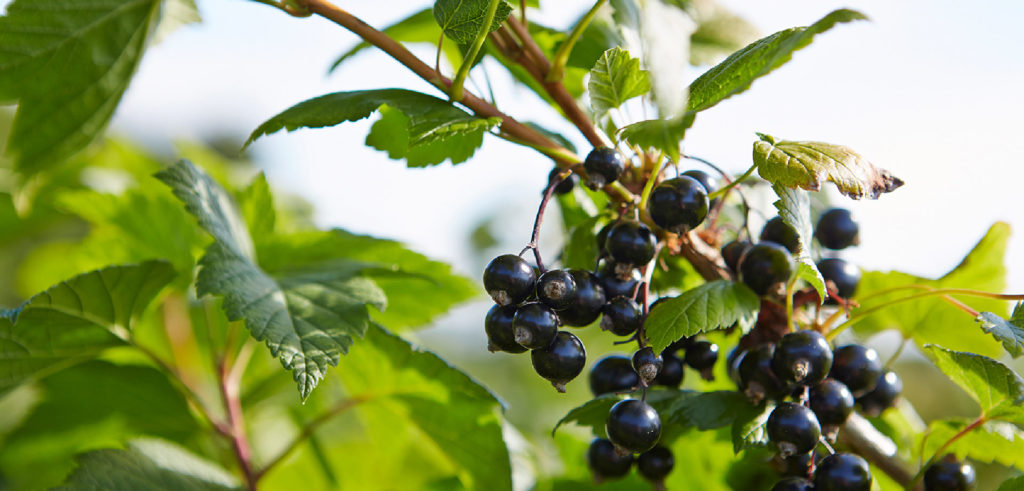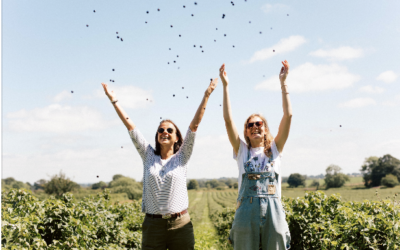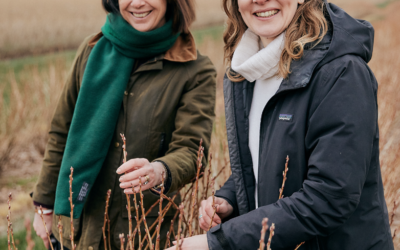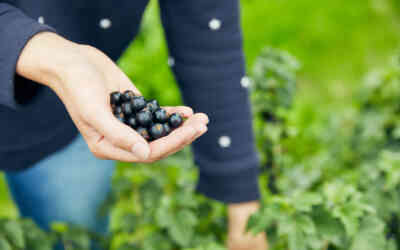Why do blackcurrants grow so well in the UK?

Last year, our growers harvested a whopping 13,000 tonnes of blackcurrants, mostly to make the blackcurrant cordial all know and love, Ribena! However, have you ever wondered why blackcurrants grow so well in the United Kingdom? Prepaps sometimes unfavourable for most, blackcurrants love the Great British Weather! Continue reading to find out why…
We may complain about the British climate, but our Great British superfruit certainly isn’t! With cold winters and warm summers, the UK has the ideal conditions to grow Blackcurrants. Blackcurrants have grown well in the UK for over 500 years, and many Blackcurrant Foundation growers have grown blackcurrants for generations, managing 2,000 hectares of blackcurrant fields across the British Isles. This tiny berry is part of British History, mainly due to the UK having perfect growing conditions for these purple powerhouses.
During the winter, cold spells ensure that blackcurrants flower at the right time for optimum pollination. They require approximately 2,000 cold hours (below 7c) before they start to grow buds in the spring. This means it reduces the risk of frost damage to new buds and ensures that buds open rapidly in the spring. This also means they flower when there are lots of essential pollinators around – mainly bees but also butterflies, moths and other insects too. Therefore, a frosty winter followed by rising temperatures in spring and summer is essential for a healthy crop of blackcurrants come harvest in July-August when the berries are at their sweetest.
However, with rising temperatures during the winter, blackcurrants have a shorter and milder ‘chill time’ which will affect the harvest. The James Hutton Institute has discovered that milder winters may cause blackcurrant crops to flower later in the year, produce less fruit, and over repeated years, have a reduced plant lifespan.
In light of this, a new climate-resistant variety has been developed- ‘Ben Lawes’ alongside Ribena’s brand owner, Lucozade Ribena Suntory and the James Hutton Institute (the leading agricultural research centre for soft fruits). This new variety has taken 20 years to develop and last year (2020) was the first successful harvest! We’re thrilled that our dedication to keep the Great British Blackcurrant thriving in our ever-changing climate has paid off. The development of this new blackcurrant variety means we will be able to protect the future of the crop and help secure UK blackcurrant growers’ livelihoods.
YOU MAY ALSO WANT TO READ
How to Get Involved in Blackcurrant Day
Blackcurrant Day 2022: We’re ‘berry’ excited! You’ll know by now that we’re bonkers about blackcurrants at The Blackcurrant Foundation. Last year, we took it upon ourselves to celebrate those little purple powerhouses with a national day...
What Spring means to blackcurrants…
This month has been a busy one our blackcurrant farms! Spring brings the return of the warmer weather, and the fields of woody brown branches suddenly transform into fields of beautiful green. Spring is always a significant point in the year as life returns to the...
A list as long as ‘Blackcurrants’
We've got a list as long as 'Blackcurrants' as to why you should be adding these delicious berries to your diet. The cold weather has set in, and cold and flu season is here, so give your immune system a boost with the power of purple berries! Read on to find out...




